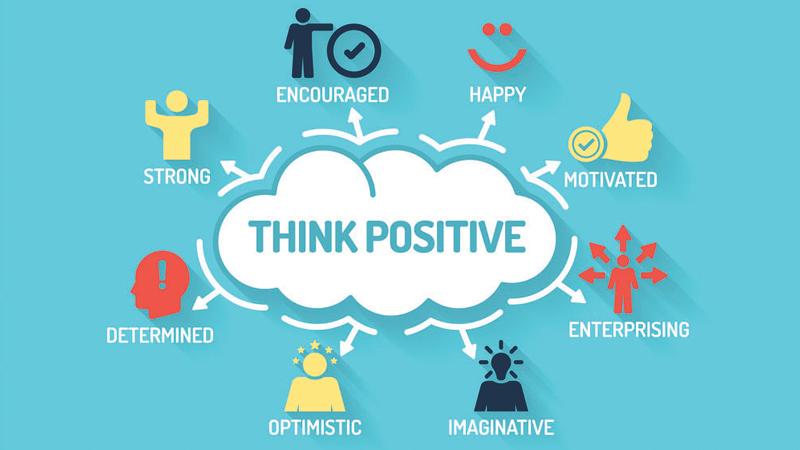
It is probably not a surprise to you that positivity is, inherently, at the center of positive psychology.
Positivity doesn’t always refer to simply smiling and looking cheerful, however—positivity is more about one’s overall perspective on life and their tendency to focus on all that is good in life.
In this piece, we’ll cover the basics of positivity within positive psychology, identify some of the many benefits of approaching life from a positive point of view, and explore some tips and techniques for cultivating a positive mindset.
This piece is a long one, so settle in and get comfortable. Let’s get started.
Science-based exercises will explore fundamental aspects of positive psychology including strengths, values and self-compassion and will give you the tools to enhance the wellbeing of your clients, students or employees.
 What is a Positive Mindset and Attitude?
What is a Positive Mindset and Attitude?
You probably have an idea of what a positive mindset or positive attitude is already, but it’s always helpful to start with a definition.
This definition from Remez Sasson (n.d.) is a good general description:
“Positive thinking is a mental and emotional attitude that focuses on the bright side of life and expects positive results.”
Another, more comprehensive definition comes from Kendra Cherry at Very Well Mind (2017B):
“[P]ositive thinking actually means approaching life’s challenges with a positive outlook. It does not necessarily mean avoiding or ignoring the bad things; instead, it involves making the most of the potentially bad situations, trying to see the best in other people, and viewing yourself and your abilities in a positive light.”
We can extrapolate from these definitions and come up with a good description of a positive mindset as the tendency to focus on the bright side, expect positive results, and approach challenges with a positive outlook.
Having a positive mindset means making positive thinking a habit, continually searching for the silver lining and making the best out of any situation you find yourself in.
Characteristics and Traits of a Positive Mindset:
So, now we know what a positive mindset is, we can dive into the next important question: What does it look like?
There are many traits and characteristics associated with a positive mindset, including:
Optimism: a willingness to make an effort and take a chance instead of assuming your efforts won’t pay off.
Acceptance: acknowledging that things don’t always turn out how you want them to, but learning from your mistakes.
Resilience: bouncing back from adversity, disappointment, and failure instead of giving up.
Gratitude: actively, continuously appreciating the good things in your life (Blank, 2017).
Consciousness/Mindfulness: dedicating the mind to conscious awareness and enhancing the ability to focus.
Integrity: the trait of being honorable, righteous, and straightforward, instead of deceitful and self-serving (Power of Positivity, n.d.).
Not only are these characteristics of a positive mindset, but they may also work in the other direction—actively adopting optimism, acceptance, resilience, gratitude, mindfulness, and integrity in your life will help you develop and maintain a positive mindset.
A List of Positive Attitudes
If you found the list above still too vague, there are many more specific examples of a positive attitude in action.
For example, positive attitudes can include:
It is looking adversity in the eye… and laughing.
Getting what you get, and not pitching a fit.
Enjoying the unexpected, even when it’s not what you wanted originally.
Motivating those around you with a positive word.
Using the power of a smile to reverse the tone of a situation.
Being friendly to those you don’t know.
It’s getting back up when you fall down. (No matter how many times you fall down.)
Being a source of energy that lifts those around you.
Understanding that relationships are more important than material things.
Being happy even when you have little.
Having a good time even when you are losing.
Being happy for someone else’s success.
Having a positive future vision, no matter how bad your current circumstances.
Smiling.
Paying a compliment, even to a total stranger.
Tell someone you know that they did a great job. (And mean it.)
Making someone’s day. (Not just a child’s… adult’s like to have their day be special, too!)
It’s not complaining no matter how unfair things appear to be. (It is a waste of time… instead, do something!)
Not letting other people’s negativity bring you down.
Giving more than you expect to get in return.
Being true to yourself… always
